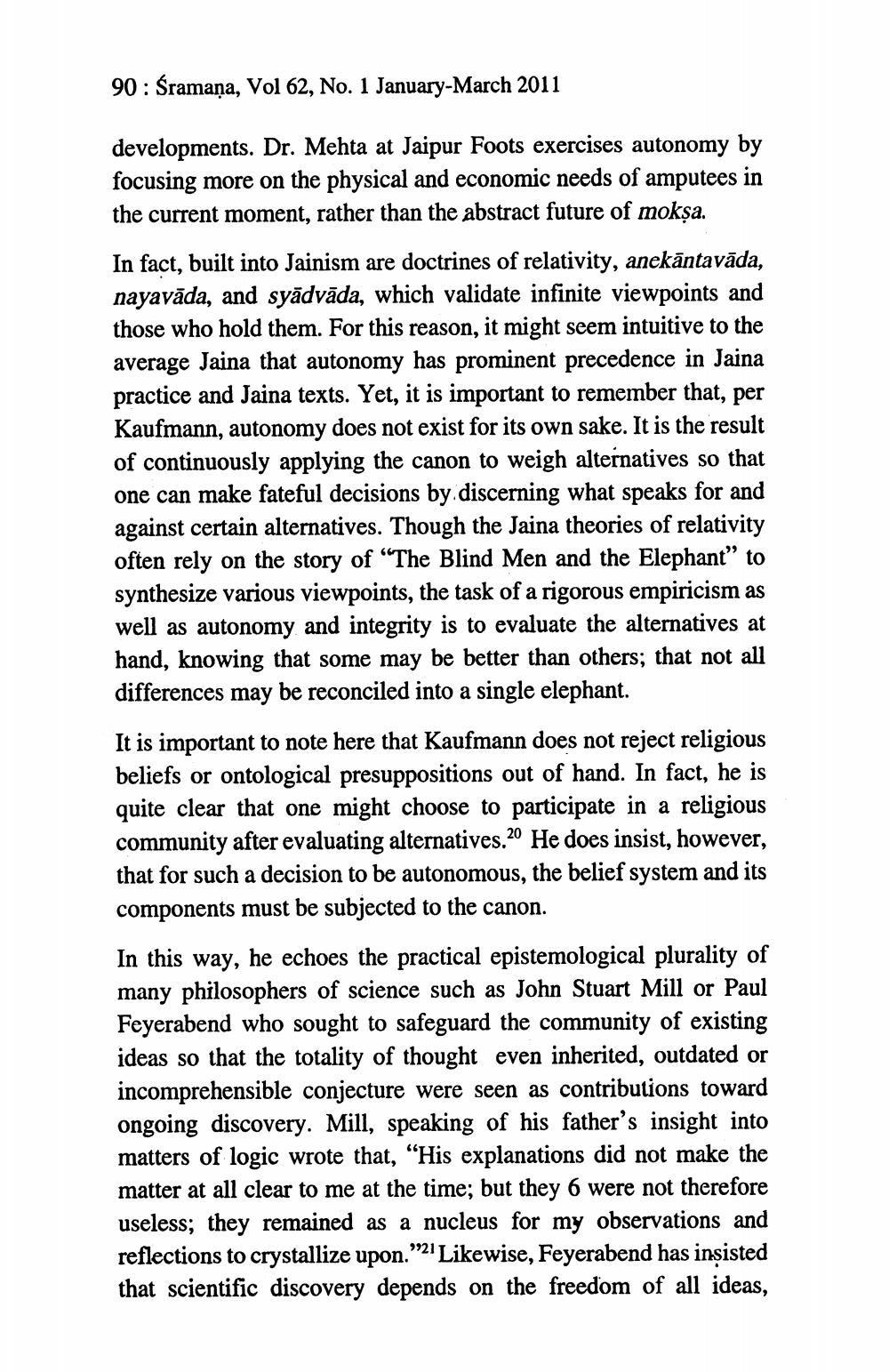________________
90 : Śramaņa, Vol 62, No. 1 January-March 2011
developments. Dr. Mehta at Jaipur Foots exercises autonomy by focusing more on the physical and economic needs of amputees in the current moment, rather than the abstract future of mokṣa.
In fact, built into Jainism are doctrines of relativity, anekāntavāda, nayavāda, and syādvāda, which validate infinite viewpoints and those who hold them. For this reason, it might seem intuitive to the average Jaina that autonomy has prominent precedence in Jaina practice and Jaina texts. Yet, it is important to remember that, per Kaufmann, autonomy does not exist for its own sake. It is the result of continuously applying the canon to weigh alternatives so that one can make fateful decisions by discerning what speaks for and against certain alternatives. Though the Jaina theories of relativity often rely on the story of "The Blind Men and the Elephant” to synthesize various viewpoints, the task of a rigorous empiricism as well as autonomy and integrity is to evaluate the alternatives at hand, knowing that some may be better than others; that not all differences may be reconciled into a single elephant.
It is important to note here that Kaufmann does not reject religious beliefs or ontological presuppositions out of hand. In fact, he is quite clear that one might choose to participate in a religious community after evaluating alternatives.20 He does insist, however, that for such a decision to be autonomous, the belief system and its components must be subjected to the canon. In this way, he echoes the practical epistemological plurality of many philosophers of science such as John Stuart Mill or Paul Feyerabend who sought to safeguard the community of existing ideas so that the totality of thought even inherited, outdated or incomprehensible conjecture were seen as contributions toward ongoing discovery. Mill, speaking of his father's insight into matters of logic wrote that, “His explanations did not make the matter at all clear to me at the time; but they 6 were not therefore useless; they remained as a nucleus for my observations and reflections to crystallize upon."21 Likewise, Feyerabend has insisted that scientific discovery depends on the freedom of all ideas,




